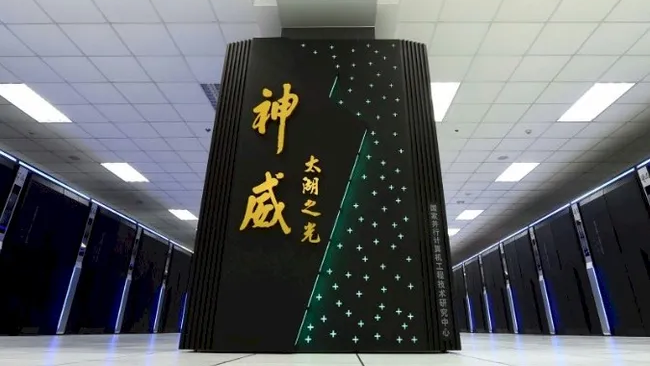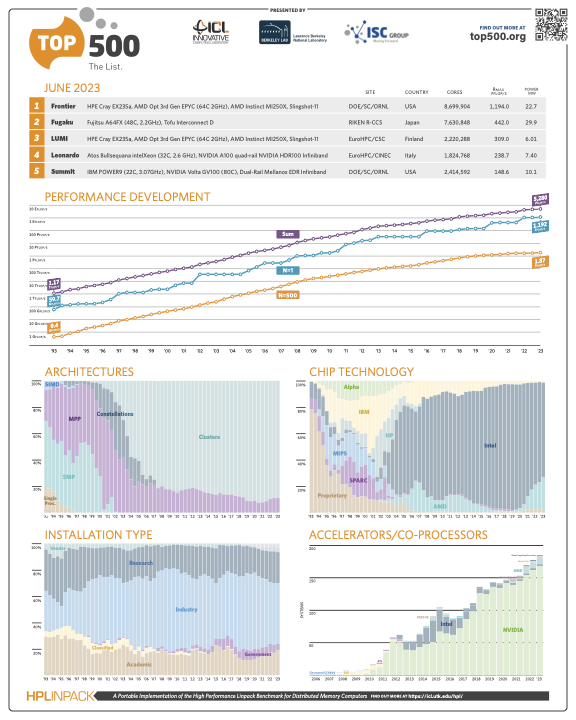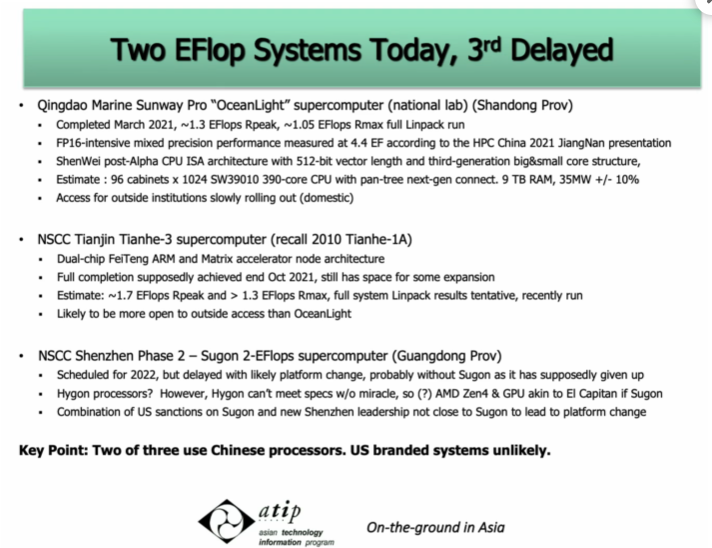China May Have Unmatched Supercomputer Abilities, Third Exascale Machine Apparently Online

- Oops!Something went wrong.Please try again later.
One of the top minds in supercomputing has a warning for the West. Jack Dongarra, an industry luminary, Turing award laureate, and co-founder of TOP500, says the US is likely behind China in the exascale supercomputing race. It appears that a third Chinese exascale supercomputer, long thought to be halted indefinitely due to the impact of US sanctions, has come online. Meanwhile, the US currently only has two exascale machines, Frontier and Aurora, in operation.
When Dongarra says China might have the lead, it isn't taken lightly. China hasn't submitted its fastest exascale-class supercomputers to the Top500 list, the de-facto supercomputer listing and benchmarking process that's responsible for bringing clarity to how the world stands in processing capability, fearing that it will draw the attention of US regulators, thus triggering more sanctions. It follows that the official picture provided by the Top500 isn't an accurate representation of reality as it is missing data.
According to the TOP500, China comes in at a distant 7th (with the Sunway TaihuLight supercomputer) and 10th place (Tianhe-2) - trillions of calculations per second away from the top dog, the US-based (and AMD-powered) Frontier exascale computer. This isn't a picture of reality.
"It’s a well known situation that China has these computers, and they have been operating for a while," Dongarra told the South China Morning Post. "They have not run the benchmarks, but [the community has] a general idea of their architectures and capabilities based on research papers published to describe the science coming out of those machines."

We know China has installed two exascale-class supercomputers — China doesn't submit its machines to the Top500 list, but it has submitted results for two of these machines for the Gordon Bell Prize. This yearly award recognizes "outstanding achievement in high-performance computing" based on the types of science run on the machines.
However, according to the SCMP article, it appears that a third machine, which hasn't been submitted for the prize, has now come also online.
China has submitted two machines for the Gordon Bell Prize: The Sunway OceanLight, which was developed by the National Supercomputing Centre in Wuxi, and the Tianhe-3 from the National Supercomputing Center of Tianjin, which was crunching AI workloads before it became mainstream.

However, there's also a third unnamed supercomputer, purportedly made by China-based Sugon, at the National Supercomputing Center in Shenzhen. This machine hasn't been submitted for the prize, and the project has long been thought to be halted indefinitely due to Sugon being placed on the blacklist in 2019. The company also lost access to the Hygon CPUs, a series of China-produced x86 processors based on AMD's Zen design, that it planned to use because US sanctions shut down AMD's joint venture that produced the processors. It's unclear which processors are being used for the machine.
The TOP500, being a voluntary listing, means that most won't step up to the task. And when we consider the current geopolitical climate, one can see it isn't conducive to transparency, openness, or a "head first" participation style.
"Maybe having the No.1 computer would make news and put China under the spotlight," Dongarra told the SCMP. "It can cause the US to take actions against China that would further restrict technologies from flowing into China."
It's interesting how Dongarra's observation maps onto reality: China having the top supercomputer would definitely make the news. And when it comes to tech restrictions being imposed or aggravated, we've had a couple of years of that already.
“However, China is still the country which produces the most supercomputers. With domestic and Western-designed chips, supercomputers assembled in China are sold all over the world, including the US,” said Dongarra.
We've all felt the consequences of the sanctions at some point or another. Of course, there's still the open question of whether the sanctions are actually doing what they are intended to - restrict China's ability to catch up to the U.S. technologically and economically. Chinese companies being publicly bullish about recouping sanction-imposed losses in a year's time has to put at least a question mark over their effectiveness in the first place.

